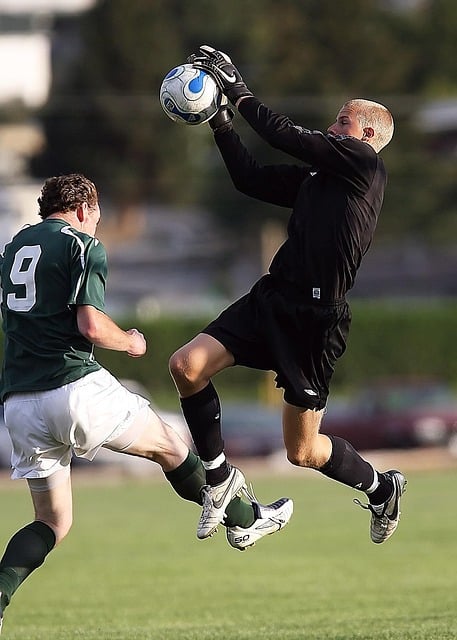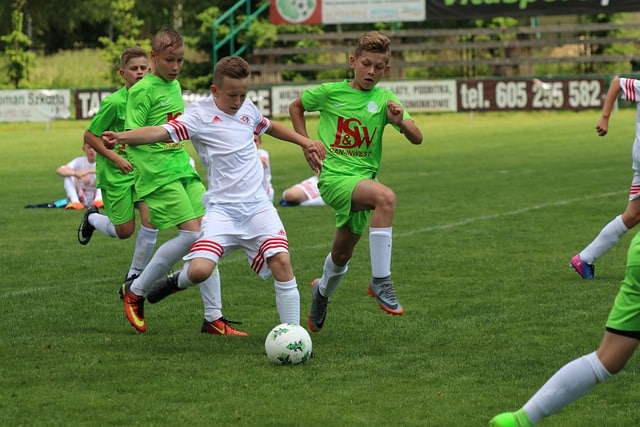Soccer isn’t just a game—it’s an art form. Every pass, every dribble, and every shot requires a unique blend of skill, awareness, and mindset. Whether you’re a seasoned player or just starting out, there’s always room for improvement. And trust me, you don’t have to be a professional to take your game to the next level. With the right soccer drills, techniques, and mental approach, you can seriously up your performance on the field.
In this article, we’ll dive into some of the most effective tips to help you improve your game, refine your ball control, increase your passing accuracy, and—perhaps most importantly—develop the mindset of a winner. So, lace up your boots and let’s get started!
1. Start with the Basics: Master Your Ball Control
Think of ball control as the foundation of your soccer house. Without a strong foundation, everything else will crumble. If you can’t control the ball, nothing else matters—whether you’re making a pass, attempting a shot, or dodging an opponent. But here’s the thing: ball control isn’t just about kicking the ball. It’s about soft, delicate touches and keeping the ball glued to your feet.
Tip: Start simple. Try dribbling through cones to improve your touch and control. Focus on keeping the ball close to you, even at high speed. Once you’re comfortable, you can challenge yourself by varying the pace and direction of your dribbles. And don’t forget to practice with both feet!
When I was first learning how to play soccer, I used to struggle with ball control. I’d try to make big moves, and the ball would get away from me. But one day, I decided to slow things down and really focus on the finesse of my touches. It was a game-changer. Soon, I was able to glide past defenders, and my confidence soared.

2. Passing Accuracy: Get the Ball to the Right Spot, Every Time
Passing is one of the most essential skills in soccer. Without accurate passing, your team can’t build plays, create opportunities, or even maintain possession. But accuracy doesn’t come overnight—it requires precision, timing, and a lot of practice.
Tip: A great way to improve your passing accuracy is through wall-passing drills. Simply stand a few feet away from a wall and pass the ball against it. The goal? To have the ball return to you at the same speed and accuracy that you put into it. As you improve, practice with both feet and try passing at different speeds and angles.
Passing accuracy isn’t just about how hard you kick the ball, either. It’s about understanding when to pass, where to pass, and to whom. Knowing your teammate’s movement and positioning will make your passes more effective.
3. Incorporating Soccer Drills for Skills Development
If you’re serious about improvement, you’ve got to drill it in. Soccer drills aren’t just for beginners—they’re for everyone. They target specific skills that you need to refine in order to play smarter, faster, and with more control. Whether it’s dribbling, passing, or shooting, drills are the bread and butter of any good training routine.
Tip: Create a personal drill routine that includes basic and advanced skills. You don’t need fancy equipment—cones, a wall, and a ball are more than enough to practice your footwork, ball control, and passing. Spend at least 20 minutes every day focused on your drills.
4. The Art of Passing: Keep It Simple, Keep It Accurate
Passing is often considered the backbone of any successful team. But a successful pass isn’t just about getting the ball from one player to another—it’s about timing, precision, and strategy. A well-placed pass can create scoring opportunities and keep the ball moving with fluidity.
Tip: To make your passes more effective, work on keeping your passes simple and precise. The quicker the ball moves, the less chance the opposition has to intercept it. Try passing with the inside of your foot for accuracy, or the outside of your foot for curves and special effects.
When I first started playing, I tried to make long, dramatic passes to impress my teammates. It wasn’t until I started focusing on shorter, more accurate passes that I began to see real improvement in my game. In soccer, simplicity often wins the day.
5. Develop Soccer Techniques for Advanced Play
Once you’ve mastered the basics, it’s time to start diving into advanced soccer techniques. These are the skills that separate the good players from the great ones. Whether it’s learning how to curve a free kick, make a perfect volley, or dribble through tight spaces, these techniques will elevate your game.
Tip: Begin by mastering the “cruyff turn,” a slick move where you drag the ball behind you and change direction in an instant. It’s a great way to fake out defenders and create space. Once that’s down, experiment with other moves like the step-over, the drag-back, and the nutmeg. It’s all about adding variety to your game.
6. Improve Your Game Awareness: Know What’s Happening Around You
Game awareness is arguably one of the most underrated skills in soccer. It’s the ability to read the field, understand where players are, and anticipate the next move—whether that’s a pass, a shot, or a defensive action. When you have game awareness, you’re always two steps ahead of the opposition.
Tip: Train yourself to look up more often while you play. Instead of focusing solely on the ball, scan the field to see where your teammates are and how the defense is positioned. In practice, challenge yourself to control the ball while constantly scanning the field.
Personal Insight: One of the best pieces of advice I received was from my coach: “Stop watching the ball; watch the game.” At first, it was tough to break the habit, but once I started keeping my head up and reading the game, my decision-making improved dramatically.
7. Soccer Strategy: Work as a Team
Soccer is a team sport, and while individual skills are important, strategy is what ties everything together. A well-executed football strategy can break down even the toughest defenses. Good strategies involve a combination of passing, positioning, and timing.
Tip: A simple yet effective strategy is the “give-and-go” or wall pass. It’s a play where a player passes the ball and immediately runs into space to receive it back. This move creates instant movement and forces defenders to react, often leading to an opening for a shot on goal.
When I was younger, I used to focus solely on scoring goals, thinking that was the only way to win. But as I matured as a player, I realized that strategy and teamwork were the real drivers of success. A good pass, a well-timed run, and intelligent positioning can be just as valuable as a goal.
8. Cultivate a Winning Mindset
You can have all the talent in the world, but if your mindset isn’t right, none of it matters. A winning mindset is one that embraces challenges, learns from failure, and stays calm under pressure. In soccer, as in life, the ability to bounce back from mistakes and keep pushing forward is key.
Tip: Start by setting realistic goals for yourself—both short-term and long-term. Celebrate your victories, no matter how small, and always strive to improve. A positive mindset will help you push through tough games and challenges.
9. Physical Fitness and Conditioning for Soccer
It’s no secret that soccer is physically demanding. If you’re serious about improving your game, you need to focus on your fitness. Strength, speed, agility, and stamina all play a vital role in your overall performance. The fitter you are, the more effective you’ll be on the field.
Tip: Incorporate cardio, strength training, and agility drills into your routine. Sprint intervals, long-distance runs, and ladder drills will improve your overall endurance and speed. Don’t neglect flexibility—stretching before and after games will help prevent injuries and keep you playing at your best.
10. Consistency is Key: Stick to Your Routine
Improvement doesn’t happen overnight. It takes consistency, hard work, and dedication. By sticking to a regular training routine, you’ll gradually see your skills improve over time. Whether it’s dedicating time to soccer drills, working on your fitness, or refining your mindset, every bit of effort counts.
Tip: Set a schedule for your training sessions, and treat them like any other appointment. Consistency will not only improve your skills but also build your confidence and commitment to the game.
Conclusion: The Road to Soccer Success
Improving at soccer takes time, dedication, and, most importantly, a love for the game. Whether it’s through perfecting your ball control, improving your passing accuracy, or mastering advanced soccer techniques, each step you take will bring you closer to your goals. Keep working hard, stay focused, and—above all—enjoy the process. Soccer is a beautiful game, and with the right mindset and effort, you’ll keep getting better, one practice at a time.
Frequently Asked Questions
- How often should I practice soccer drills? Aim for at least 3-4 practice sessions per week. This allows you to maintain consistency while also preventing burnout.
- What’s the best way to improve my passing accuracy? Focus on your technique, practice with both feet, and incorporate wall-passing drills to improve your consistency.
- How can I improve my game awareness? Watch professional games, study players’ movements, and always keep your head up during play to anticipate what’s happening around you.
- How do I develop a winning mindset? Visualize success, stay positive even after mistakes, and keep pushing yourself to improve, even in tough moments.
- What kind of fitness is most important for soccer? Focus on cardiovascular endurance, leg strength, and flexibility. A strong core and agile footwork are also essential for quick movements.
- How can I improve my first touch? Practice receiving the ball with different parts of your body, and work on cushioning the ball to control its direction after the initial touch.


